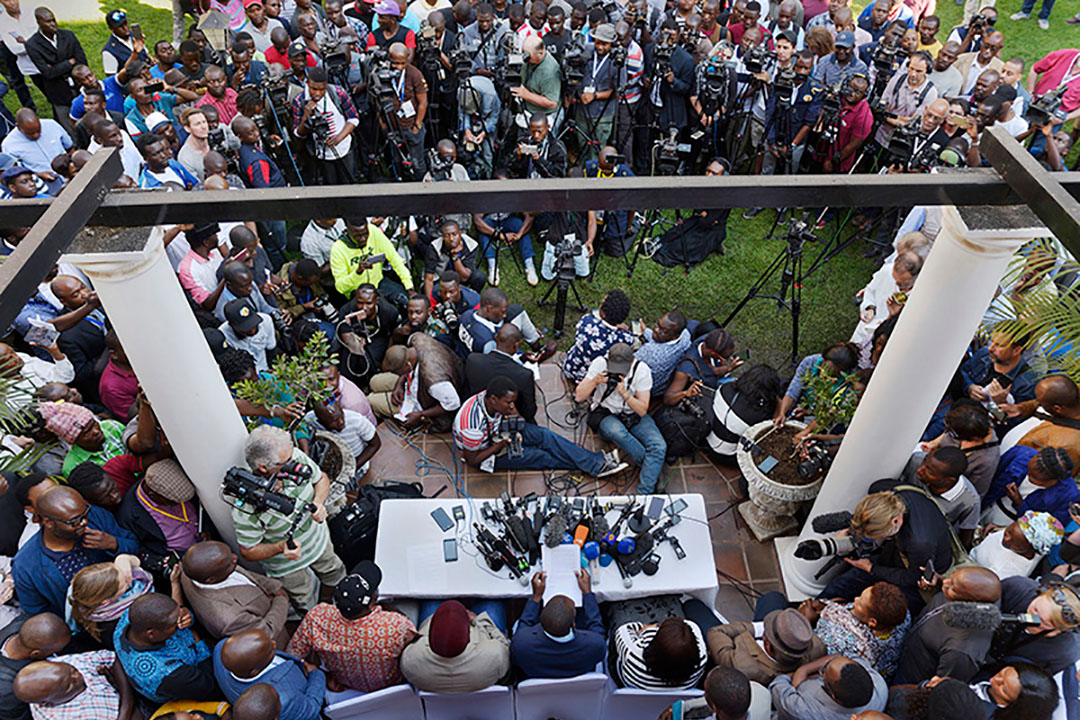
Zimbabwe, Harare, Bronte Hotel, 3 August 2018. A press conference by MDC’s Nelson Chamisa, after the riot police left the area.
Zimbabweans are using social media to bypass state control of traditional news and information platforms
We live in a fast-moving world where traditional media have been forced to adapt to changing times. Media houses that have suffered from inertia and failed to evolve accordingly have died painful “deaths”, leaving journalists unemployed. Two decades ago, news organisations could afford to sit on a big story for a week or more while working on details, fact checking and finding additional information to put flesh on the bone.
But that was before the culture of breaking news took root in the 1990s, giving rise to the international 24-hour news cycle and the current culture of “breaking news”. Today, the immediacy created by the Internet and, more importantly, social media platforms that carry anything from scurrilous gossip to morbid rumours, means that too often half-baked stories are put out without verification.
Social media has forced traditional news organisations to adapt to compete with individuals armed with nothing but a cellphone camera and a bit of information – the so-called citizen journalists. For example, “breaking news” outlets such as CNN have created platforms on their websites where citizen journalists can submit news material covering fast-moving events such as hurricanes or riots.
While this has come at a cost, sacrificing news quality and fact checking, the flip side is that social media has opened up the media space in repressive countries where authoritarian dictators and governments control state-owned propaganda architecture such as radio, television and newspapers.
In these societies, the advent of social media platforms has broken down the barriers designed to stop the free flow of information through news, music, theatre, social commentary and many other forms of information delivery.
In southern Africa this has been most profound and self evident in Zimbabwe, where successive Robert Mugabe governments refused to countenance the opening up of broadcasting space in both radio and television to professional and independent players.
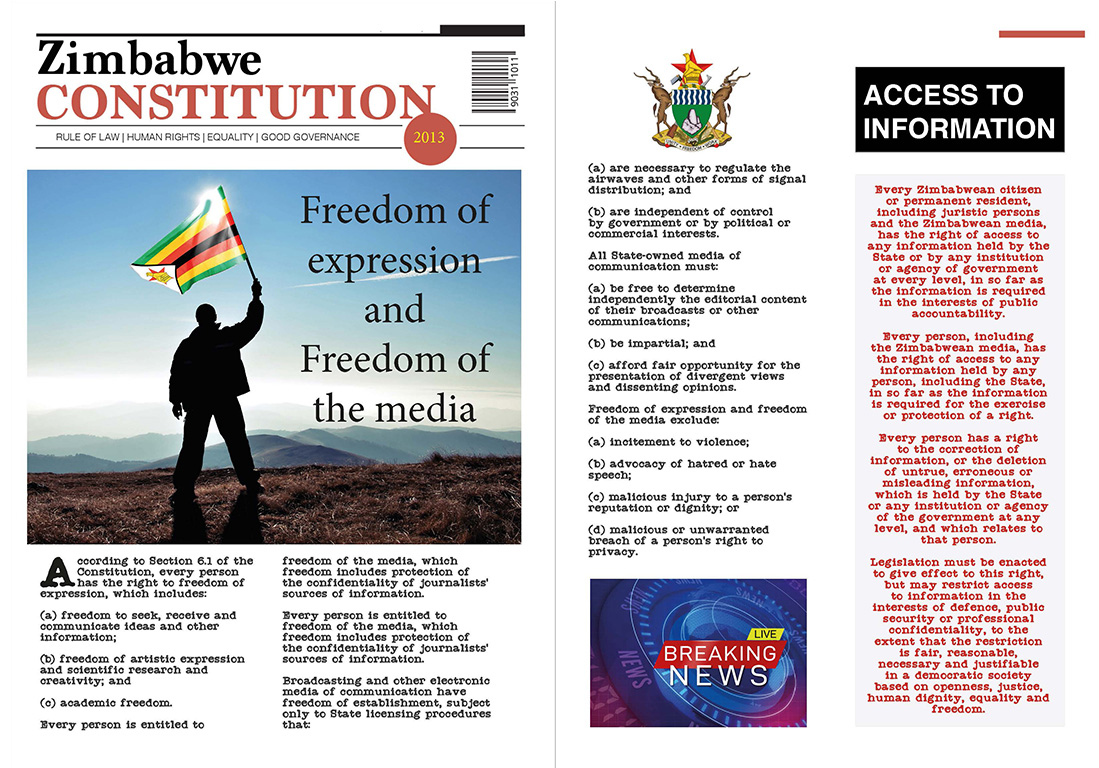 Zimbabwe has had television since November 1960, the first country in sub-Saharan Africa to have the service after Nigeria (1959). Today, however, Zimbabwe is the only country of its size and importance in sub-Saharan Africa not to have licensed private television stations, representing an African backwater of broadcasting and news technology. This has been done to control the flow of information in a well-calculated, deliberate and repressive way meant to ensure a single narrative – that of the governing party.
Zimbabwe has had television since November 1960, the first country in sub-Saharan Africa to have the service after Nigeria (1959). Today, however, Zimbabwe is the only country of its size and importance in sub-Saharan Africa not to have licensed private television stations, representing an African backwater of broadcasting and news technology. This has been done to control the flow of information in a well-calculated, deliberate and repressive way meant to ensure a single narrative – that of the governing party.
It is in this environment that the Internet and social media platforms have been useful in trying to decongest and loosen the state controlled grip on traditional media platforms.
The state has often used the Constitution as the instrument of choice in its attempts to muzzle the media. The Access to Information and Protection of Privacy Act (AIPPA) was enacted in 2002 to bring the media under state control through the Ministry of Information, sarcastically dubbed by foreign journalists as the Ministry of Truth.
The Constitution became the legitimate instrument for blocking any democratisation of the media space, and the state used AIPPA to ban and refuse media accreditation to targeted journalists and related media practitioners.
AIPPA was amended in 2005 to include the imprisonment of journalists if convicted under the Act, a move designed to instill the fear of God in the media sector. The government could now legitimately repress the media with the help of a constitutional provision, which if broken presented a real threat of being sent to prison.
The late lawyer and co-founder of Zanu-PF, Eddison Zvobgo, who died in 2004, described the original AIPPA Bill as “…manifestly unconstitutional”.
Speaking in parliament in 2002, Zvobgo said: “I can say without equivocation that this Bill, in its original form, was the most calculated and determined assault on our liberties guaranteed by the Constitution in the 20 years I served as cabinet minister and as a member of the cabinet committee on legislation.
“What is worse, the Bill was badly drafted, in that several provisions were obscure, vague, over-broad in scope, ill-conceived and dangerous,” he concluded.
This was Mugabe’s modus operandi. He would make a bad law in parliament, using his two-thirds majority to get it passed, and use it for his own ends. Mugabe would then counter opposition to his actions by referring back to the law, pointing out that it was within the parameters of the Constitution. This is what many today call rule by law as opposed to the rule of law.
Media representations of experiences, communities, topics, or ideas from a particular ideological, political characterisation and value perspective have been a highly-contested area in Zimbabwe.
The licensing of private daily newspapers, especially the Daily News in 1999, provided an alternative news source and a new perspective from the traditional state-controlled daily newspapers. Zimbabweans now had access to an alternative daily news source that had no links to the state or its sprawling media empire.
The Daily News became the first serious competitor to the government-controlled Herald daily newspaper, which morphed into a fulltime government propaganda megaphone.
As the competition for space in the newspaper market intensified, the Daily News printing press was bombed in January 2001, in what was seen as a continuation of a government-backed campaign of intimidation against its critics.
In 2003, the government, using the AIPPA, shut down the Daily News after the paper challenged a part of the Act that required it to seek accreditation to get an operating licence. The newspaper would remain off the streets for the next seven years.
The dearth of credible information and news sources saw the advent of UK- and US-based radio stations in 2001, which were run by Zimbabweans but funded by European and the US governments, in an attempt to break the state’s stranglehold on the airwaves.
SW Radio, based in the UK, and Voice of America’s Studio 7, based in Washington DC, competed with the state-controlled Zimbabwe Broadcasting Corporation (ZBC) radio stations, but with very little effect in terms of setting the news agenda. These stations were more reactive to what was happening in the country rather than proactive in breaking news stories or forming cogent and unchallenged opinions.
The most listened-to radio station in Zimbabwe is ZBC’s Radio Zimbabwe that broadcasts in vernacular languages, playing music and broadcasting radio drama, current affairs programming and news bulletins. The foreign-based radio stations didn’t have a cocktail of entertainment programming like Radio Zimbabwe, so their attraction was mainly to the ardent news consumer who invariably was already a convert of opposition politics.
The UK- and US-based stations also broadcast on short wave, which was difficult to access for listeners in a country where the frequency modulation used by the ZBC was easily accessible in both urban and rural areas.
Finally, affluent Zimbabwean citizens started getting their news from the Internet and 24-hour international news television stations, while the economically marginalised acquired cheaper satellite television alternatives procured from middle eastern countries. These middle eastern satellite dish providers had, and still have, the capability of stealing unscrambled broadcast signals from foreign stations.
However, with the intensification of social media, more people started accessing alternative news sources such as Facebook, Twitter and WhatsApp, none of which are subject to government control, short of shutting them down altogether, which is unlikely. It is within this context of easily accessible information that Zimbabwe’s state-controlled media has become a shadow of its former self.
However, the majority of Zimbabweans still live in rural areas where these digital platforms are not easily accessible as yet because of the cost of smart phones, a lack of strong Internet connectivity and the high cost of using mobile data. Zimbabweans in rural areas, therefore, still rely on traditional broadcasting services, especially radio, which remain in the hands of the state and its surrogates.
Where television is accessible the ruling party has been losing elections for the past 18 years; where television is not easily accessible, for both signal and financial reasons, the ruling party wins elections.
HOPEWELL CHIN’ONO is an award-winning Zimbabwean international journalist and documentary filmmaker. He is a Harvard University Nieman Fellow and a CNN African Journalist of the Year winner. He is also a fellow at the University of Oxford’s Africa Leadership Institute.

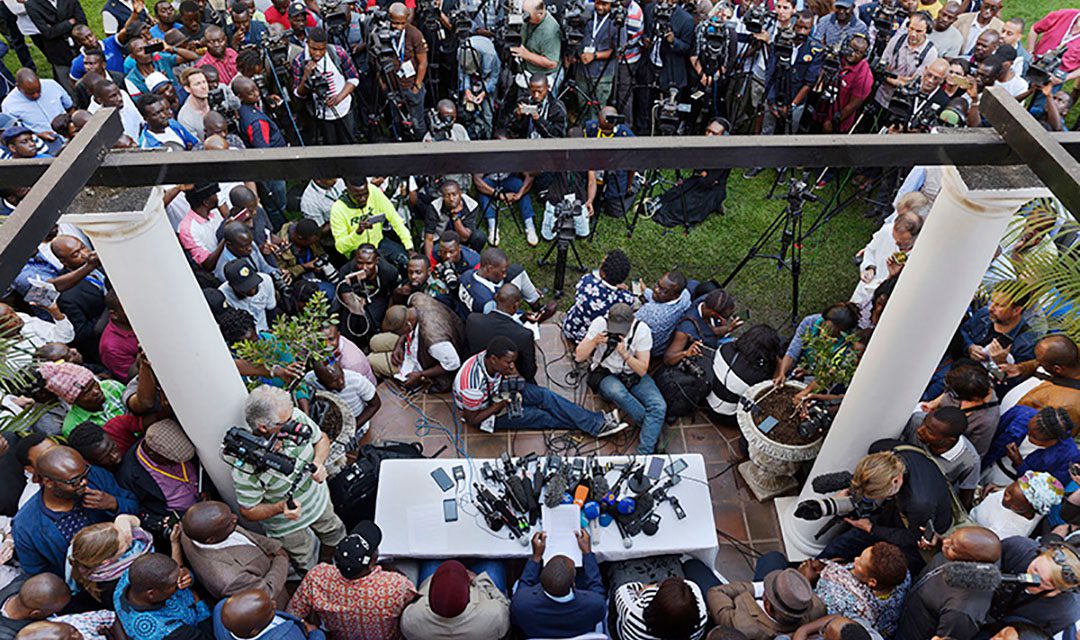
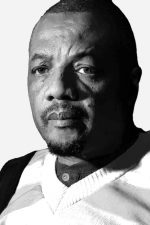
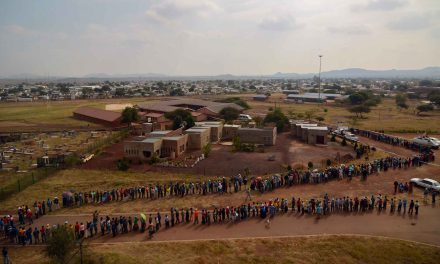
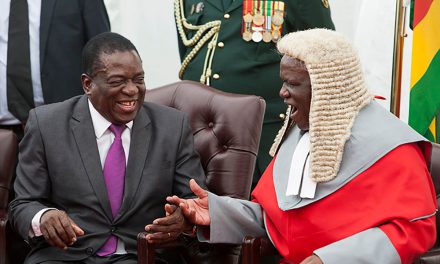
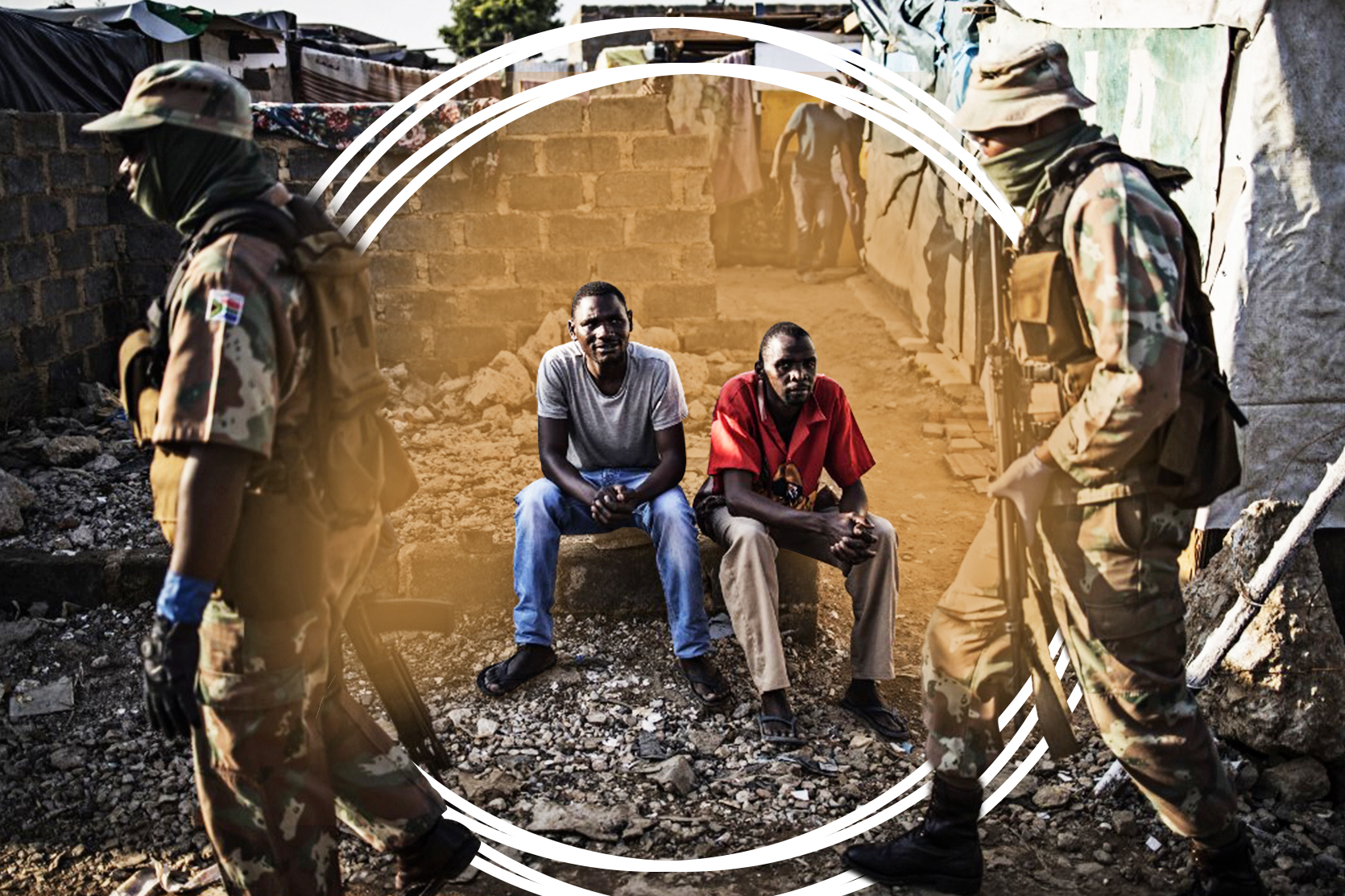



It is the best time to make some plans for the future and
it is time to be happy. I have read this post and if I could I wish to
suggest you some interesting things or advice. Maybe you
can write next articles referring to this article.
I desire to read more things about it! Hello! I’ve been reading your website for
a long time now and finally got the bravery to go ahead and
give you a shout out from Porter Texas! Just wanted to say keep
up the great job! There is certainly a lot
to learn about this issue. I like all of the points you’ve made.
http://newground.com
My blog – Will
Hi Will,
Thanks for the response. Kindly keep an eye on our page for more*
Magnificent goods from you, man. I’ve be aware your stuff prior to and
you’re just too magnificent. I really like what you have
acquired right here, certainly like what you are stating and the
way in which during which you assert it. You’re making it enjoyable and you still care for to stay it sensible.
I cant wait to learn much more from you. That is really a wonderful website.
Good Day,
Many thanks for the response.
Thank you for the kind words, kindly keep any eye on our page for more*
What i do not realize is actually how you are not really a lot more smartly-favored than you might be now.
You’re very intelligent. You recognize therefore considerably in relation to
this topic, produced me for my part believe
it from a lot of numerous angles. Its like women and men aren’t interested except it’s
one thing to do with Woman gaga! Your own stuffs outstanding.
Always maintain it up!
Good Day,
Many thanks for your response and engaging with us. Kindly keep an eye on our page for more*
Pretty nice post.I just stumbled upon your weblog and wanted to say that I have truly enjoyed surfing around your blog posts.
After all I’ll be subscribing to your feed and I hope you write again very soon!
Hi Madeline,
Many thanks for the response and your kind words. Kindly keep an eye on our page for more*
Definitely believe that that you said. Your favourite reason appeared to be on the internet the simplest thing to understand of.
I say to you, I definitely get irked whilst people consider issues that they plainly do not understand about.
You controlled to hit the nail upon the top and defined out the
whole thing with no need side-effects , other folks could take a signal.
Will probably be again to get more. Thanks
Good Day,
Many thanks for the response and your kind words. Kindly keep an eye on our page for more*
Hi there colleagues, how is all, and what you would like to say about this
piece of writing, in my view its in fact amazing for me.
Good Day,
Many thanks for the response and your kind words. Kindly keep an eye on our page for more*
I think the admin of this web site is actually working hard in favor of his web
site, for the reason that here every material is quality based material.
Good Day,
Many thanks for your response and your kind words. Kindly keep an eye on our page for more*
Having read this I believed it was really informative.
I appreciate you spending some time and energy to put this content together.
I once again find myself spending a significant amount of time both reading
and commenting. But so what, it was still worthwhile!
Good Day,
Many thanks for your response and your kind words. Kindly keep an eye on our page for more*
Hello There. I found your weblog the usage of msn. This is a really well written article.
I’ll make sure to bookmark it and come back to read extra of your useful
info. Thanks for the post. I will certainly comeback.
Good Day,
Many thanks for your response and your kind words. Kindly keep an eye on our page for more*
Greetings! Very useful advice within this article! It’s
the little changes which will make the most significant changes.
Thanks for sharing!
Good Day,
Many thanks for your response and your kind words. Kindly keep an eye on our page for more*
What’s up everybody, here every person is sharing these
kinds of know-how, therefore it’s nice to read this website, and I used to go to see this website daily.
Good Day,
Many thanks for your response and your kind words. Kindly keep an eye on our page for more*
Good answer back in return of this difficulty with firm arguments and explaining everything concerning
that.
Good Day,
Many thanks for your response and your kind words. Kindly keep an eye on our page for more*
Hi there, every time i used to check blog posts here
in the early hours in the dawn, for the reason that i enjoy to find out more and
more.
Good Day,
Many thanks for your response and your kind words. Kindly keep an eye on our page for more*
Hi there, this weekend is pleasant for me, as this time i
am reading this fantastic educational post here at my house.
Good Day,
Many thanks for your response and your kind words. Kindly keep an eye on our page for more*
Piece of writing writing is also a excitement, if you be familiar with then you can write otherwise it is difficult to
write.
Hi Viola,
Many thanks for your response and your kind words. Kindly keep an eye on our page for more*
It’s going to be finish of mine day, except
before finish I am reading this fantastic article to increase my knowledge.
Good Day,
Many thanks for your response and your kind words. Kindly keep an eye on our page for more*
I quite like looking through an article that will make men and women think.
Also, thanks for allowing me to comment!
Good Day,
Many thanks for your response and your kind words. Kindly keep an eye on our page for more*
After looking over a number of the articles on your blog, I honestly appreciate your way of blogging.
I saved it to my bookmark site list and will be checking back soon. Please check out my web site as well and tell me what you think.
Good Day,
Many thanks for your response and your kind words. Kindly keep an eye on our page for more*
Everything is very open with a clear description of the challenges. It was definitely informative. Your website is very useful. Many thanks for sharing!
Hi Angelia,
Many thanks for your kind and positive words. Kindly keep an eye on our page for future articles and opinion pieces*